Struggling with electronic records
Mr. Trieu Duc Giang went to Tay Ho ward ( Hanoi ) to carry out the procedure of confirming his single status to prepare documents for buying and selling real estate and said: "According to the instructions of the staff at the document reception department and the support of the youth union volunteers, I declared on the system and received a notification of confirmation of the document, but it took a whole week for it to be resolved because the data had not been confirmed by the relevant agency. After that, I had to ask an acquaintance who used to be a ward official to look it up for me, and then the document was resolved...".
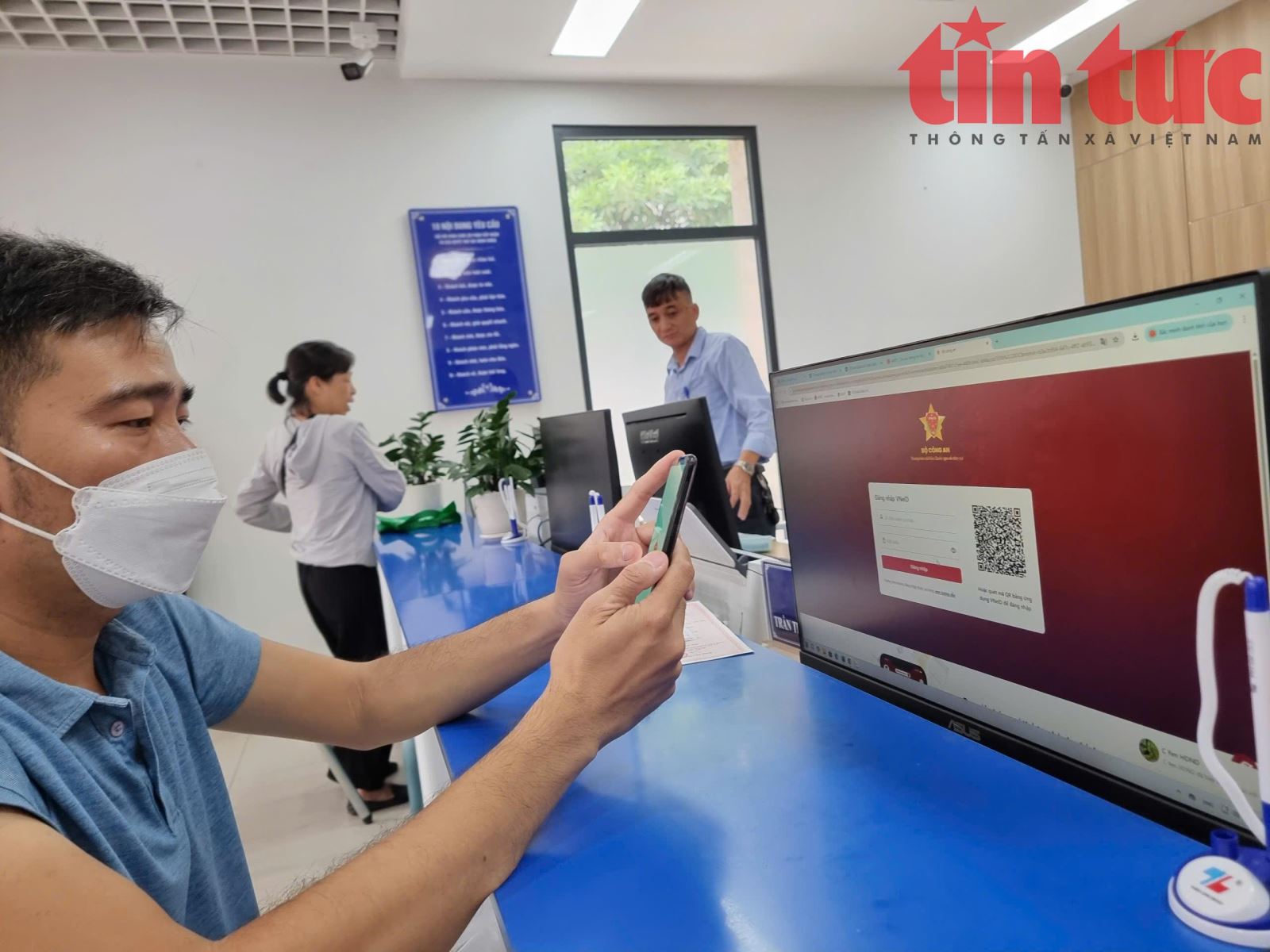
At the Lien Minh Commune Public Administration Service Point, Mr. Tran Khanh Duy (Cau Bong, Tho Xuan Commune, former Dan Phuong District, Hanoi) held his high school transcript to have it notarized and shared: "According to the requirements of the college where I studied, I had to have it notarized. When I went to the public administration service point, the staff helped me log in and declare, because I didn't know how to fill in the categories on the Online Public Service Portal...".
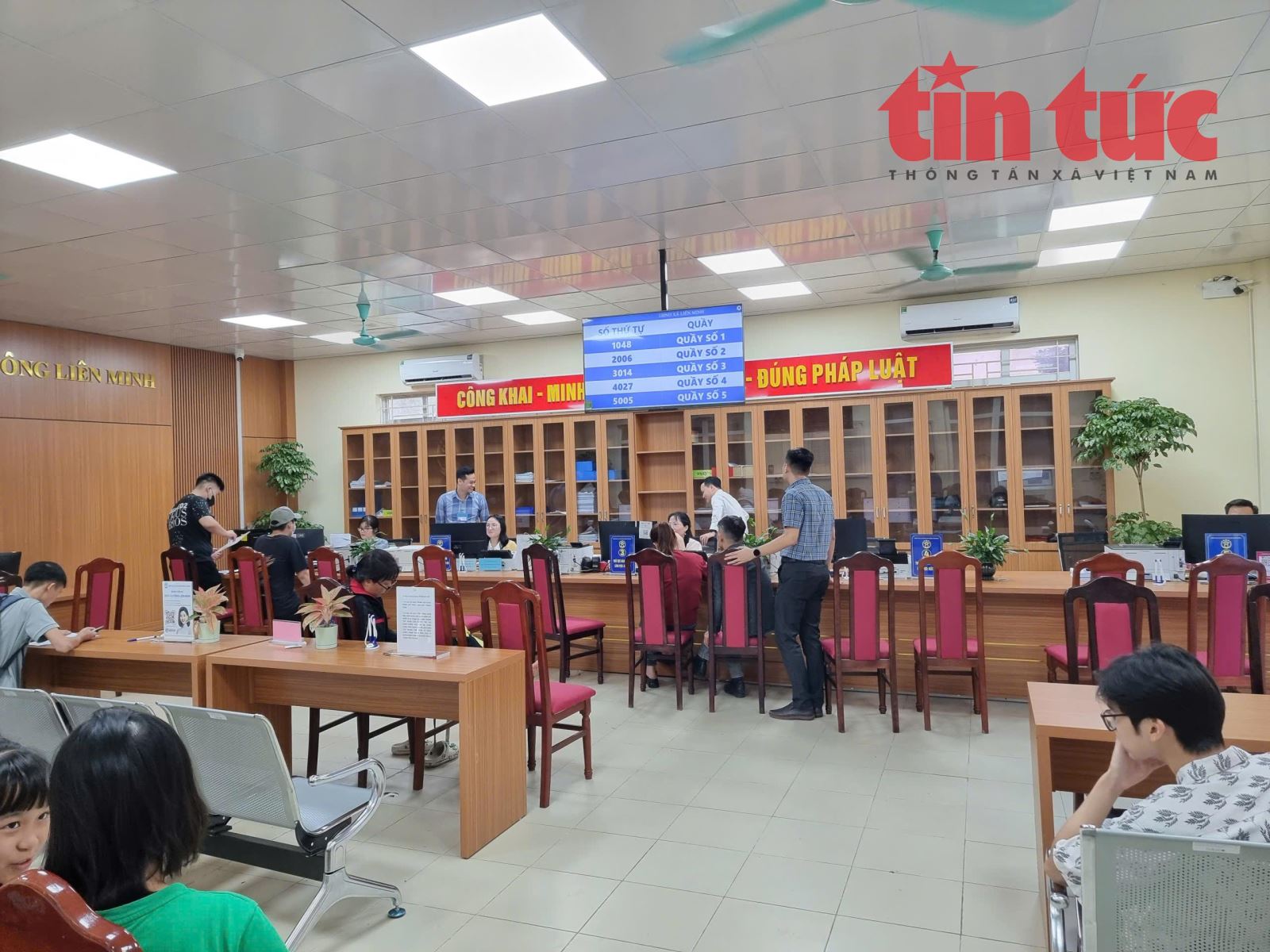
Meanwhile, at the Phuoc Long Ward Public Administration Service Center (formerly Thu Duc City, Ho Chi Minh City), it was only 8am, but the document reception counters were already crowded with people waiting their turn. On the computer tables near the reception area, youth union members were on duty to guide online operations for those who were still confused. This has been a familiar image for many months now when most of the level 3 and 4 public services have been deployed synchronously.
Ms. Ngo Hai Thanh, over 60 years old, residing in Phuoc Long ward, said that she was quite confused when she had to declare temporary residence information for tenants through the Public Service Portal. Previously, she only needed to bring documents to the ward, the officer checked and completed the procedure. Now, every step must be done on the computer or phone. Ms. Thanh shared: "I'm afraid of pressing the wrong button and having to do it all over again, and the text on the phone is small, I can't see clearly. The youth at the ward enthusiastically guided me how to do it, but I couldn't do it myself..."
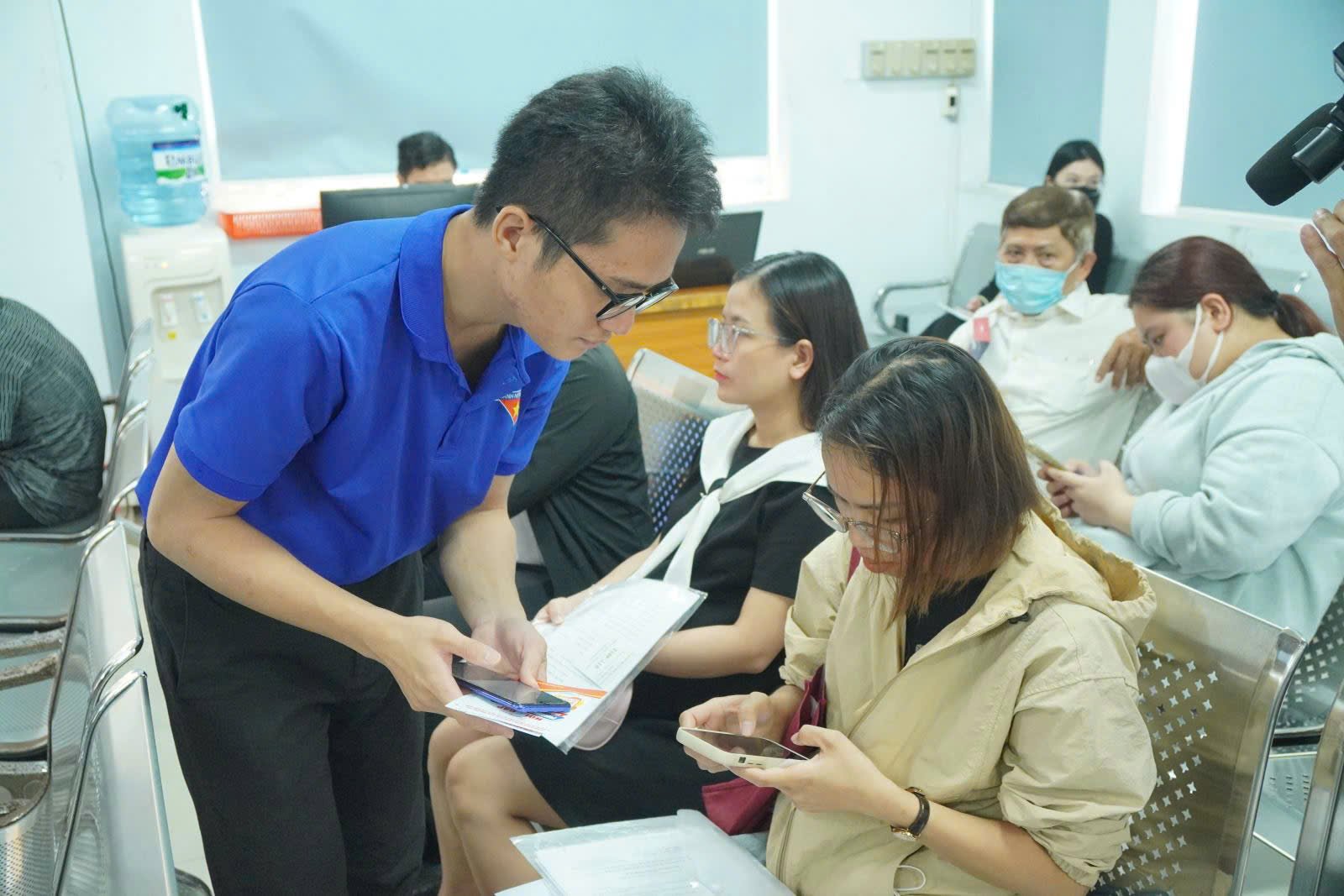
Similarly, in Tan Hung ward (old district 7), Ms. Nguyen Thi Hong, 56 years old, owner of a sole proprietorship, recounted the story of registering to change the name of her business household that almost "kept her awake". The system required the business household name not to match any existing unit nationwide, so she had to look it up many times, enter it again and again. "If it weren't for the support of the youth union here, I probably wouldn't have been able to do it. The machine lists a lot of forms, but an elderly person like me is not familiar with or doesn't understand computer terminology. If there is an error, the file will be returned...", Ms. Hong said.
According to Ms. Hong, for young people who are proficient in technology, the procedure can be completed in a few minutes, but for older people who are not familiar with smartphones, do not have a level 2 identification account, do not know how to save, submit, and download documents, etc., digitization is like "a difficult learning process from scratch".
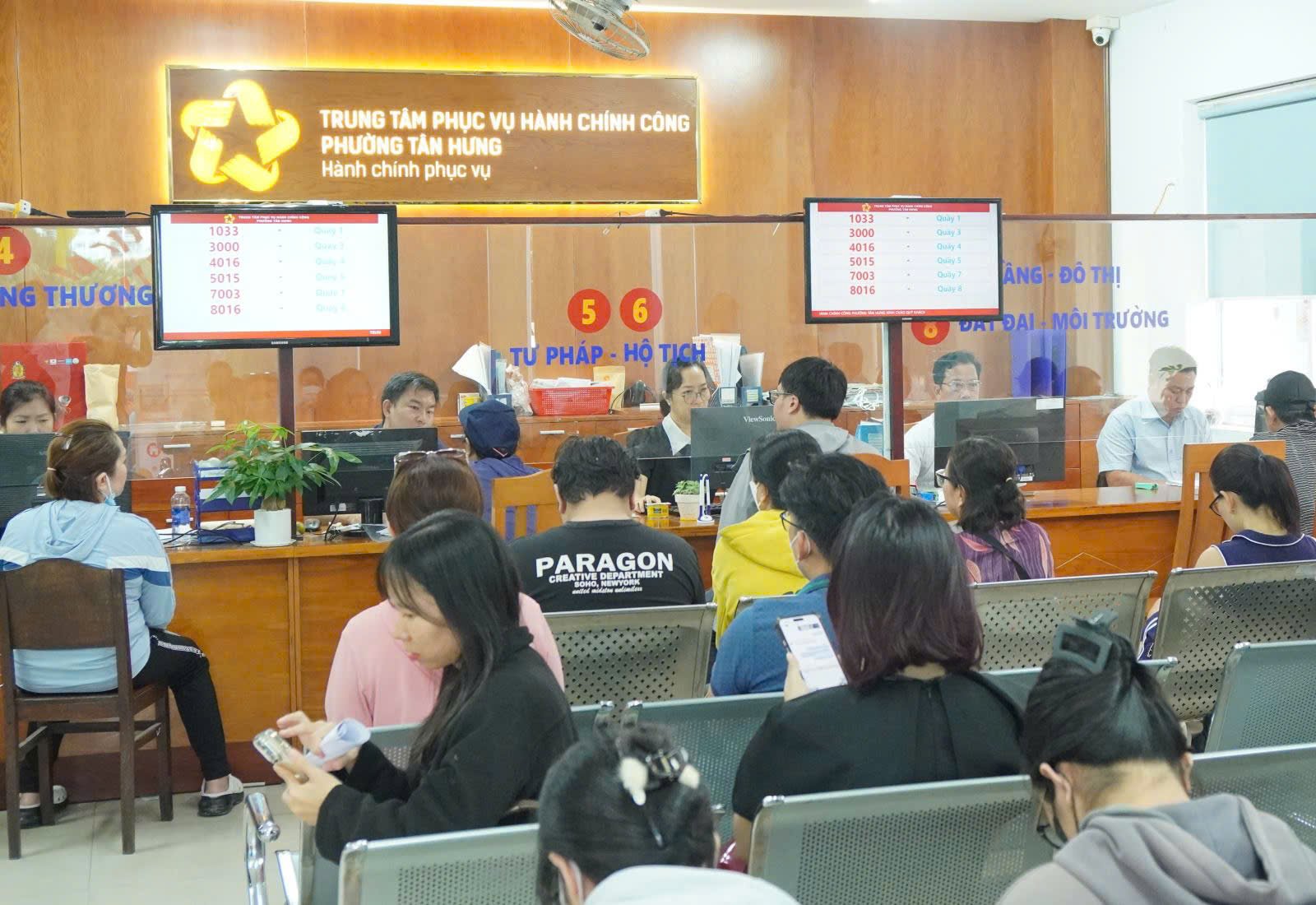
At the Binh Thanh Ward Public Administration Service Center, Ms. Vu Thi Hoi Diem, Deputy Director of the center, said that every day, there are 300-400 people coming to do procedures, mainly household registration and certified copies. Although people are encouraged to submit applications online, the center still accepts paper applications to avoid congestion and ensure the progress of returning results. Ms. Diem said that digital transformation needs time for people to adapt, especially when the mentality of "going to the ward to be sure" is still common. Therefore, the number of people coming to the ward to declare information online is still quite large.
In Tan Vinh Loc commune, Mr. Truong Ngoc Thanh Nhan, Director of the Commune Administration Center, said that the commune has arranged 5 computers and a community digital transformation team on duty every day to support people. However, the number of files requiring direct support is still very large, especially the authentication and household registration group, which accounts for more than 80%. In fact, people do not oppose digital transformation. They just need time to understand, to get used to, to feel confident. In this transitional period, the role of "hand-holding" support from public agencies and public administrative officers is extremely essential.
Administrative staff strive to adapt
According to Mr. Lam Dinh Thang, Director of the Department of Science and Technology of Ho Chi Minh City, digital transformation in public administration is an important step forward, helping to improve management efficiency, reduce travel time, reduce social costs and increase transparency. Since the implementation of the Smart City Project in 2017 and current digital transformation programs, the City's digital infrastructure has been invested in more synchronously, online public services are increasingly improved. Thanks to that, the digital economy index contributing to the City's GRDP has continuously increased, reaching 21.5% in 2023. The Local Online Services Index (LOSI) of Ho Chi Minh City was evaluated by the United Nations, ranked 53/193 cities in the world - an important step forward.
However, Mr. Thang also frankly pointed out many limitations: The human resources in information technology are not sufficient; the infrastructure in some wards and communes is still weak and especially the digital gap between population groups is still large: Young people use it quickly, middle-aged people are still hesitant, and the elderly have difficulty accessing it. If digital transformation is implemented too quickly and without guidance, people risk being "left behind"...
Mr. Nguyen Van Nhat, Deputy Chief of the Office of the People's Council and People's Committee of Lien Minh Commune (Hanoi), in charge of the commune's Public Administration Service Point, said: For the elderly, it is quite difficult to operate and fill in items on the Online Public Service Portal. From the statistics of the Online Public Service Point's activities, up to 90% of the records are related to certified copies, judicial records, and household registration, so the commune arranged an officer to support people in entering data into the Public Service Portal; at the same time, organized 43 community digital technology teams with the youth union as the core.
“The management agency’s desire is to build a digital government, but without digital citizens it will be difficult. Therefore, we have identified this as a transitional period to both operate and resolve online administrative procedures for the people in the best way, while also building digital citizens,” Mr. Nguyen Van Nhat shared.
According to the leader of the Hanoi Public Administration Service Center, on average, they receive over 8,900 applications per day, which is a large amount of work, not only receiving, but also guiding and supporting citizens to get acquainted with online public services. The rate of online applications reached 96.2%. This is a positive sign for the digital transformation strategy in the community, in line with the goals set in Resolution No. 57 of the Politburo.
However, the implementation process still revealed difficulties such as: The arrangement of personnel at the administrative service points of communes and wards is still limited because the number of allocated staff is basically the same (average 5 people/point), while the number of records arising between points has a large difference.
“Some administrative procedures (AP) after decentralization and authorization are still entangled in specialized laws and instructions from ministries, leading to confusion in receiving and handling. The connection and sharing of data between agencies is generally limited, leading to many requests for opinions when handling APs, indirectly creating complicated processes and increasing implementation time,” said a representative of the Hanoi Public Administration Service Center.
From a legal perspective, Lawyer Nguyen Van Chinh (Ho Chi Minh City Bar Association) said that, in the current period, State agencies are having to operate "two tracks" in parallel: Receiving online documents and paper documents. This increases the pressure on public service, officials have to both process documents and provide guidance on the use of online public services, causing a large burden on human resources.
Lawyer Chinh commented: “Digital administrative transformation is an inevitable trend. But to implement it effectively, both state agencies and people must change. The state needs a roadmap and close guidance; people need to proactively prepare tools such as level 2 identification accounts, digital signatures, and electronic payment methods. When both move together, public procedures will be truly convenient and smooth.”
Mr. Lam Dinh Thang said that digital transformation is not only about moving to a digital environment, but also about changing the mindset from doing things for others to guiding, from submitting directly to proactively accessing, from depending on officials to doing things yourself. That change in mindset requires time, patience and companionship. Ho Chi Minh City's journey of digitalizing public administration is on the right track, but to bring full benefits to the people, especially vulnerable groups, it is necessary to continue to increase support, improve community digital skills and perfect the technical foundation. Digital transformation is only truly successful when "no one is left behind".
Mr. Nguyen Nhat Quang, Founding Council, Director of VINASA Institute of Science and Technology, affirmed: When you go to the Public Administrative Service Center and see a lot of people queuing, you immediately know that online public administrative services are not effective. In theory, when doing online services in digital space, especially full-process public services, people do not have to come directly. Currently, people still have to come directly and declare online, so it is invisibly multiplying the time and workload. This requires solutions in both organization and process, and application of technology.
Final article: Data connection between ministries and branches is still problematic
Source: https://baotintuc.vn/xa-hoi/giai-quyet-thu-tuc-hanh-chinh-truc-tuyen-bai-1-nguoi-dan-loay-hoay-thao-tac-20251111152400872.htm







![[Photo] Highways passing through Dong Nai](https://vphoto.vietnam.vn/thumb/1200x675/vietnam/resource/IMAGE/2025/11/12/1762940149627_ndo_br_1-resize-5756-jpg.webp)
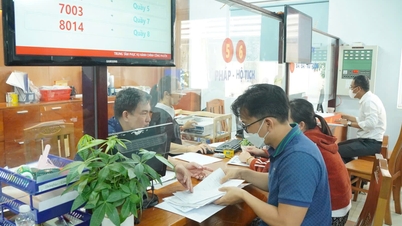


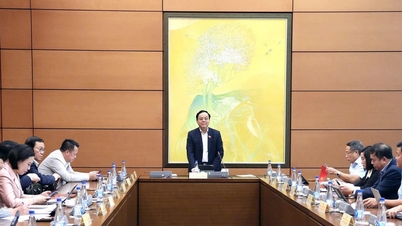







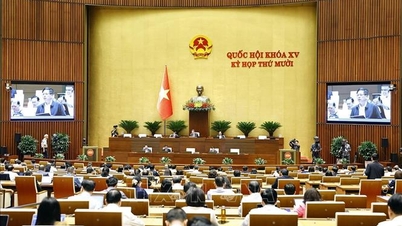










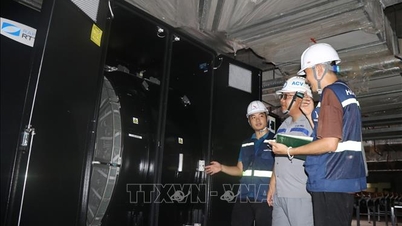

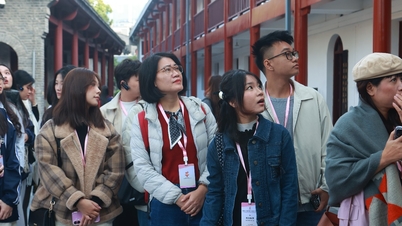

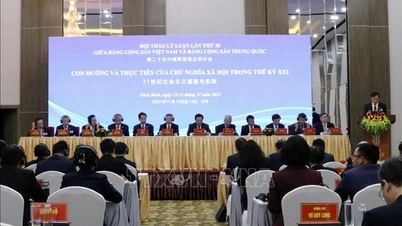






















































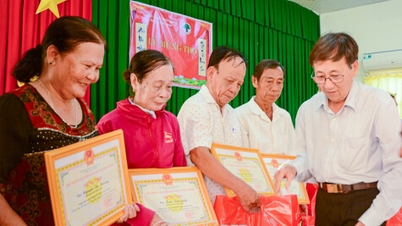

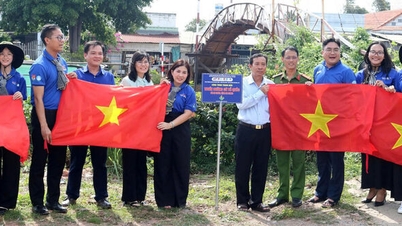

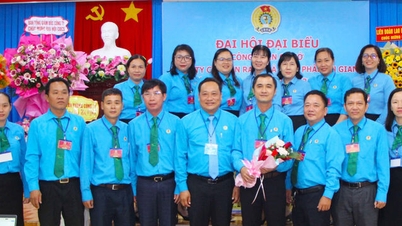




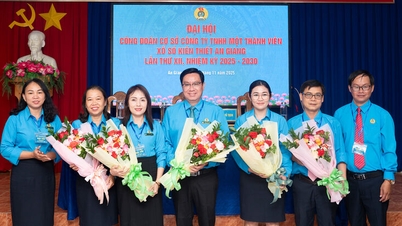



![Dong Nai OCOP transition: [Article 3] Linking tourism with OCOP product consumption](https://vphoto.vietnam.vn/thumb/402x226/vietnam/resource/IMAGE/2025/11/10/1762739199309_1324-2740-7_n-162543_981.jpeg)





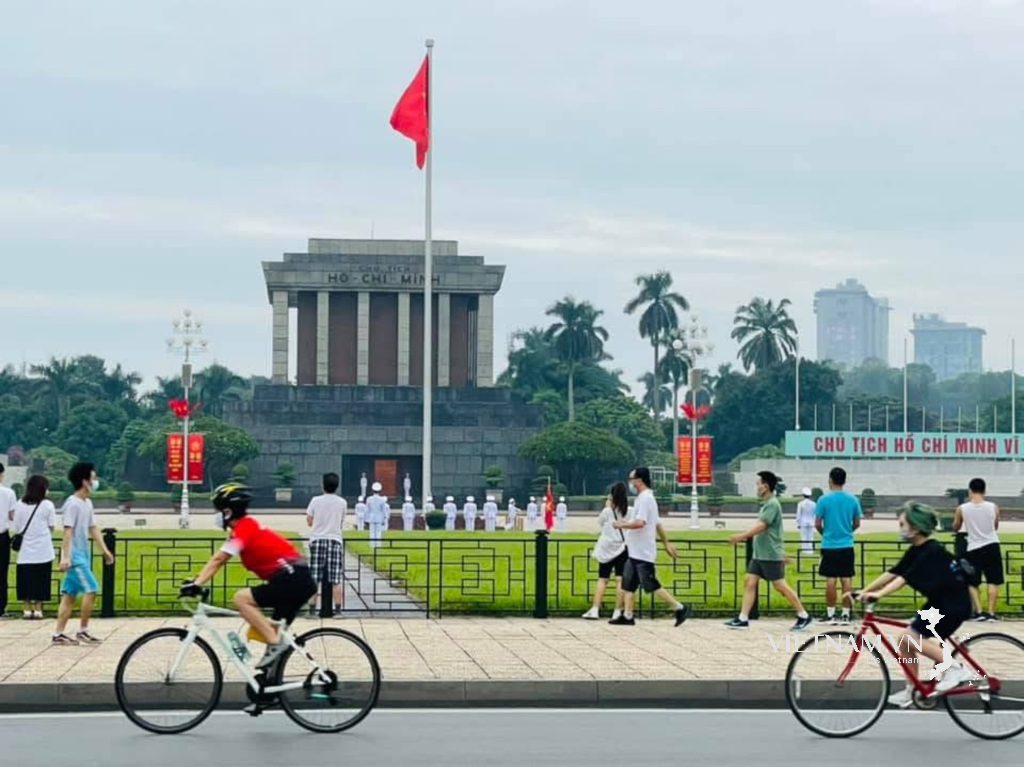


Comment (0)